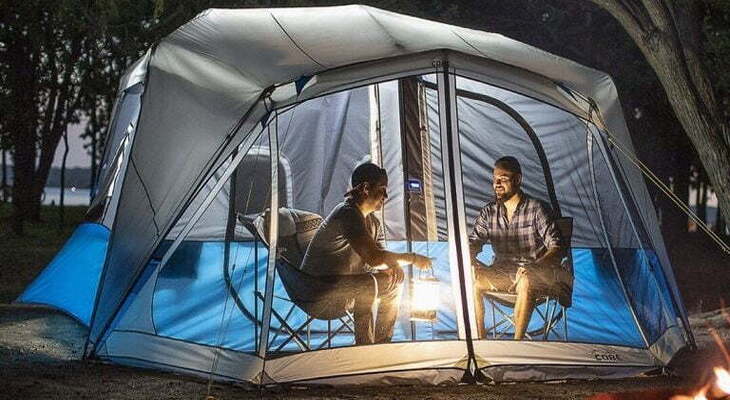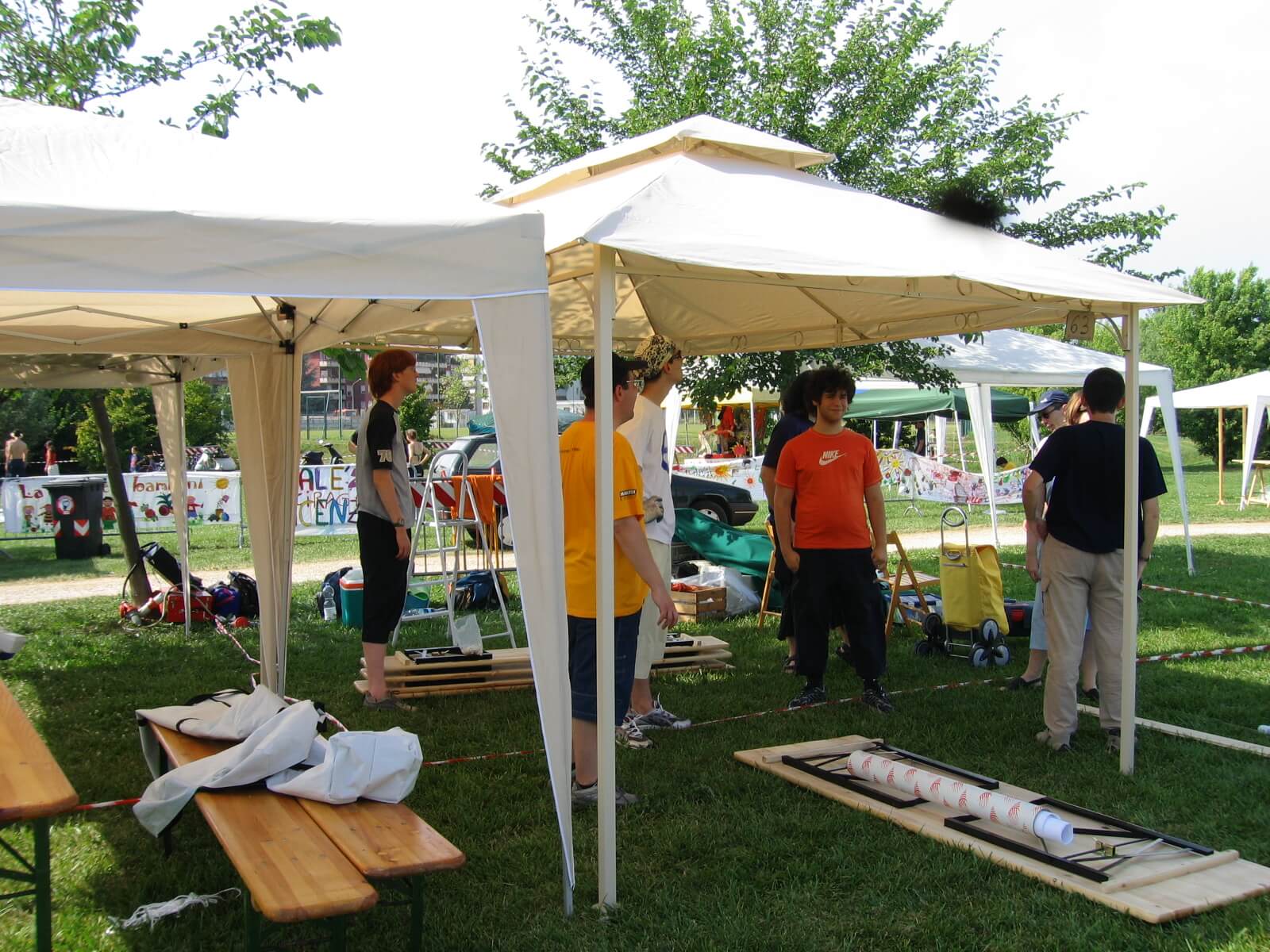
The main types of noise are the calling and the load noise. The calling noise is due to the contact between the armature and the magnetic field, while the load noise is related to the imbalance of the rotor movement.
The two noises will increase as the speed increases, but the load noise can be reduced by a scroll-type structure. The generator noise is produced by the imbalance of the rotor movement and the magnetic properties of the stator.
Direction to reduce the generator noise is to balance the rotor and the stator properly, to use the special steel in the rotor and the pole, to decrease the gaps between the stator and the rotor, and improve the magnetic materials.
Contents
The 10 Best Methods to Silence a Generator
1. Buy a new muffler
All mufflers do is quiet down sounds that come out of the car’s engine. This is especially important for new cars where it is difficult to hear but it will also reduce the amount of pollution coming out of the engine
It is impossible to have the same engine running a car but the only difference will be the muffler. There are a variety of mufflers that you can choose from. They can be restrictive or relaxed depending on the manufacturer and the flow of gases that it can permit
To determine which muffler will be the best, you should look at the materials that were used to create the muffler. If the muffler is made with stainless steel, then it will be more durable
You can find these materials at local muffler shops. It may take you some time to do this since you will have to look around. You can also buy mufflers online. There are plenty of car part stores that are doing business online.
2. Use rubber feet
Generators are quite useful when it comes to power outages. They are used to power anything from the lights to refrigerators, or even the air conditioners.
They have tons of benefits and are used in industries, homes, and offices. However, generators are quite noisy. This can be quite annoying, especially after a long day at work when you are planning to relax. There are a few ways to get rid of this noise, but we will focus on one of the best ways: using rubber feet.
3. Build a soundproof generator box
If you’re like me, you’re probably not happy about the noise your generator makes. I mean, it’s not like you get a choice, but the noise level is just unbearable. But that’s about to change.
Today I’m going to show you how to build a soundproof generator box. And the best part is that it’s not hard at all. In fact, I have a feeling that you can build it at the same time it takes you to read this short article.
4. Install sound deflectors
The noise of generators is a big problem for players at the live poker tables. But there is a solution. The sound deflectors, which are what the poker rooms of many online poker sites use, stop the noise from the generators from reaching the players.
You can get a similar effect at home if you want to muffle the sound of your generator. A wall of water from a hose or a few buckets of water and a towel is also good options. You could also invest in noise-canceling headphones.
These are specially designed headphones that are capable of blocking out outside noise. They work in a similar way to the sound deflectors do.
5. Redirect the exhaust away from you
This is a bit of a complicated topic, but it will help you understand the reasoning behind why your generator is so annoying while it is running. This is a simple solution, but it works so well in so many situations. The solution is to redirect the exhaust of the generator away from you.
The first step is to turn the generator on its side. The second step is to place a lid on the side of the generator that has the exhaust port.
You can use a plastic lid, a garbage can lid, or even a wooden lid. The important thing is to close it off tightly. The third step is to stuff the exhaust port with a rag or an old shirt. This will stop any air from escaping. The last step is to turn the generator on its back and close the lid on the top of the generator.
6. Move your generator far away
Running a generator can be a noisy experience. If you’re in a campground, it can be a major pain for your neighbors, who then complain to the campground owners, who then complain to you. If you’re in a remote location, even a little bit of noise can be a nuisance. If you’re in a city, it can be a major source of annoyance. While it’s not always possible to move your generator far away from your campsite, it is possible to reduce the amount of noise it generates.
7. Make a DIY muffler
The muffler is a device that converts the waste energy in a gas turbine exhaust into a low-pressure, sound wave. This sound wave is directed through a series of chambers, known as baffles, which slow the wave down and force it to compress. This compression of the sound wave produces a reduction in the sound energy (the decibel level) which is released into the environment.
The objective of the generator muffler is to reduce the sound level to a minimum without compromising engine performance. This is achieved by using the reaction of the gases in the exhaust to create sound and slow the sound wave sufficiently. The size and shape of the baffles will also have an effect on the sound level.
8. Put your generator in an outhouse
The generator is an extremely useful, versatile tool. It’s a great thing to have in case of a power outage. It can also be used as a very effective way to power your home. However, if you don’t use it properly, it can be a very large nuisance. Generators create noise.
They can be extremely loud, especially when they’re placed in a small area, like a garage or the basement. The sound will easily travel outside the home and into the neighborhood. This can be very annoying and disruptive.
But, you can put your generator in a shed and then put the shed in the outhouse. This is a very effective way to get rid of the noise. The generator will be inside of a structure that is well insulated, so the sound won’t be as loud. The shed will also be placed in a very out-of-the-way area, so you don’t have to worry about it being an eyesore on your property.
9. Make a water muffler
My father was an ardent fisherman, and as a kid, I remember his stories of fishing with dynamite and black powder. He used to tell me about fishing for catfish in the bayous of Louisiana with some of his friends. They would get together and fish for catfish with homemade dynamite.
They would make the dynamite from scratch, and my dad said it was called a “silencer” because it made the dynamite quiet. I couldn’t find any information on the Internet about making a water muffler, but that didn’t stop me from trying it. This is what I did:
10. Put Your Generator On A Soft Surface
Generators are downright amazing. They can power your home during a power outage, keep your ice cream from melting, and keep your air conditioning units running.
However, if you are living in an area with high winds or a high chance of rain, you need to be careful where you place your generator. The last thing you want is for your generator to get ruined when you can easily avoid it by simply putting it on top of a soft surface.
Buy a new generator
When the power goes out, everyone needs to know how to get back up and running. In the United States, most of us have access to a generator as a backup power source. Generators are a great way to keep the power on to your refrigerator and other essential appliances.
But what happens if you lose power in the middle of the night? If you own a generator, you might not be able to start it quickly. Here are a few reasons why you may have trouble starting a generator.
How do you cool down a generator?
After running a generator, never run it immediately again. There will be water condensation, which in time will cause it to rust. The best and safest way to cool it down is to let the engine cool and then run it for 10 minutes. This is the reason why:
When you start the generator, the oil is very warm and it mixes with the gasoline and produces hot fumes. These hot fumes go into the pistons and cool, which makes the pistons deposit water inside the cylinder, which turns into steam. The steam will come out of the cylinder and will be circulated by the piston in the engine and that is what we see as the white smoke coming out of the exhaust.
Generator operating temperature
How cold does a generator need to be for it to start? The recommended maximum ambient temperature for starting a generator is 20 degrees C-68 degrees F. Above this temperature, the engine may not be capable of starting, or starting may be slow.
For example, a 20 hp engine requires about 90% of full crankshaft speed to start, so a 2-second delay in crankshaft rotation results in a full minute of crankshaft rotation for the engine to achieve 90% crankshaft speed. If a starter is unable to rotate the engine fast enough to prevent it from stalling, a cold start inhibitor switch (CSIS) will be activated, which essentially heats the engine by closing the cooling system valves to prevent the engine from cooling down to the point of stalling.
CSIS works by preventing the engine from going into its normal start mode by restricting coolant flow to the engine through a thermostatic valve. The thermostatic valve is maintained closed by CSIS so that the engine never approaches the level of cold where it would stall. The engine is prevented from turning over by the starter, so the engine RPM never gets high enough to trigger the CSIS.
How to make a silencer for a generator
how do you make a silencer for a generator? Honestly, this is something that is rarely done. A silencer for a generator is actually a muffler for the engine, not a silencer for the mechanical parts of the generator.
While it is possible to muffle the generator, it is not really a good idea, because generators produce most of their noise by mechanical parts moving around at very high speeds. A silencer can dampen the sound of the mechanical parts of the generator and give a false sense that the generator is producing less noise than it actually is.
The other thing that a silencer does is reduce the amount of dirt and debris that can enter the generator. This is also not something that is desired, because the more dirt and debris that enters the engine, the more wear and tear is caused on the engine. The best way to reduce the noise of a generator is to put it in a garage or a shed where it can be insulated and have a sound barrier built around it.
What alternative can you do when there is no power supply of electricity?
Most people get a panic attack when they think of a power cut, and they start to search for alternative sources of power. But, one can use these instances as a learning experience that can help them in the future. One can use candles and oil lamps in case there is no electricity.
There are better options available too, such as a rechargeable battery, but they are much more expensive. Another option is to keep some firewood or extra kindling handy at all times. You can start a fire and when the fire dies, you can use it to warm up. This should be a short-term solution until the power returns. But, you will have to make sure that you don’t burn your house down as well with your cooking!
Generator alternatives for home backup power
In order to understand backup power solutions, you must first have a good understanding of what is meant by backup power. Backup power solutions are intended to work in the case of a power outage and they may or may not include a backup generator.
Backup generators are generally large enough to power most household appliances and are used in conjunction with fuel sources to give electric power. Generators are generally the most expensive backup power solutions.
FAQ’s
Can I put a silencer on a generator?
Yes, you can. However, this is not an idea that is loved by the authorities. There are a few reasons for that. To begin with, when you put a silencer on a generator, it will produce more noise than it actually needs to. If you want to produce a good generator, you should not use a silencer.
Also, police will not like it if a silencer is used on a generator. Suppose, one day, an emergency strikes, and a family needs a generator, but the authorities are not able to locate the source of the noise. As a result, emergency services are late to arrive at the place. None of us would want this to happen. It is, therefore, better not to use a silencer on a generator.
How do I soundproof a noisy generator?
There are two steps to soundproofing a noisy generator. The first step is to reduce the noise that it makes by buffering the noise around the generator. This can be done by building a soundproof shed that is built around the generator.
The shed can be made of plywood or other soundproofing materials. The second step is to soundproof the walls inside the generator’s shed. This is done by putting the generator in a soundproof room.
If a generator is too loud, the best solution is to shut it off. Reducing the noise around the generator is a good solution to the problem if you can’t shut the noise off.
Conclusion:
The best way to quiet a generator is to install a sound enclosure. Sound enclosures are used in a variety of commercial settings and have been proven to be highly effective for noise reduction. Sound enclosures can be custom-made to fit a variety of engine types and sizes.
By installing a sound enclosure on your generator, you will not only be able to reduce the noise output, but you will also provide a safer working environment.





